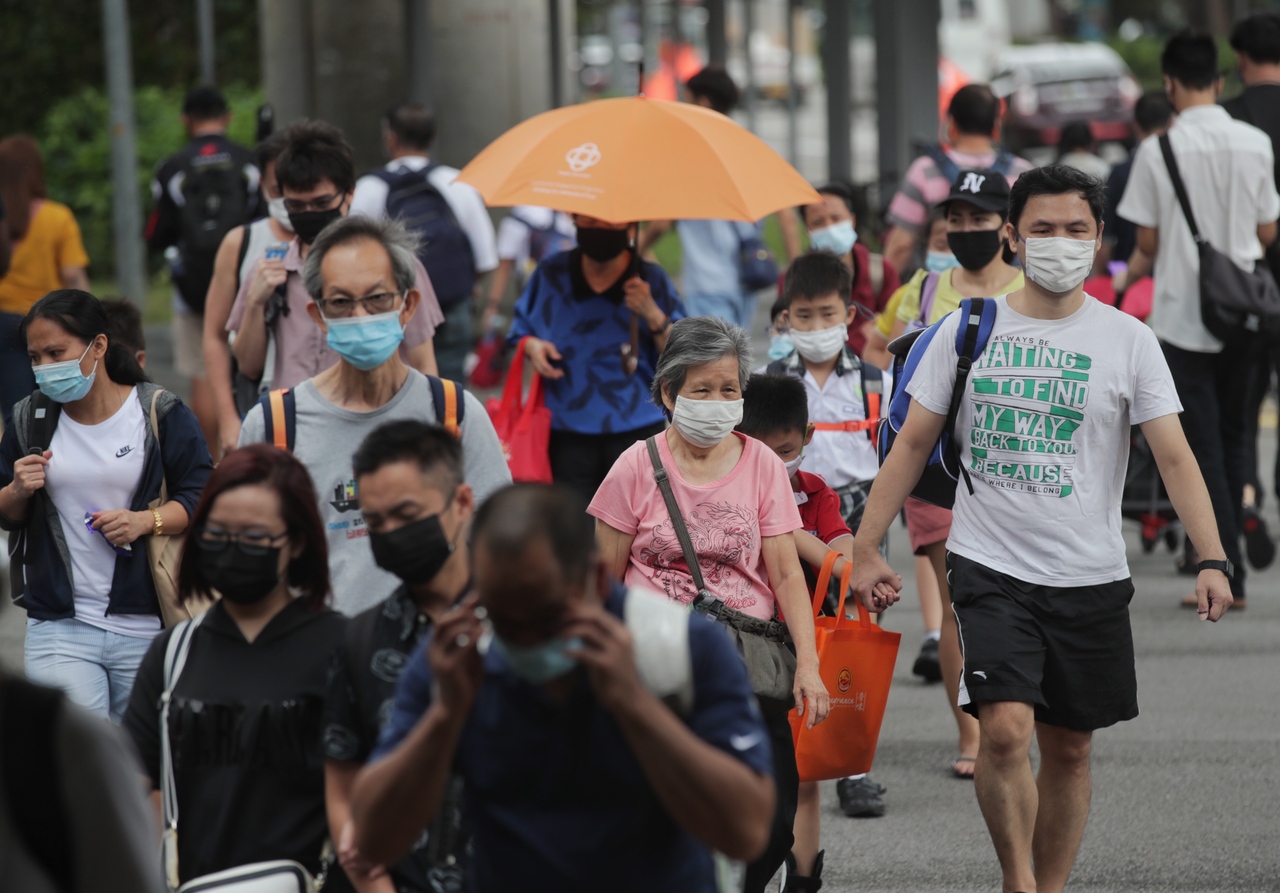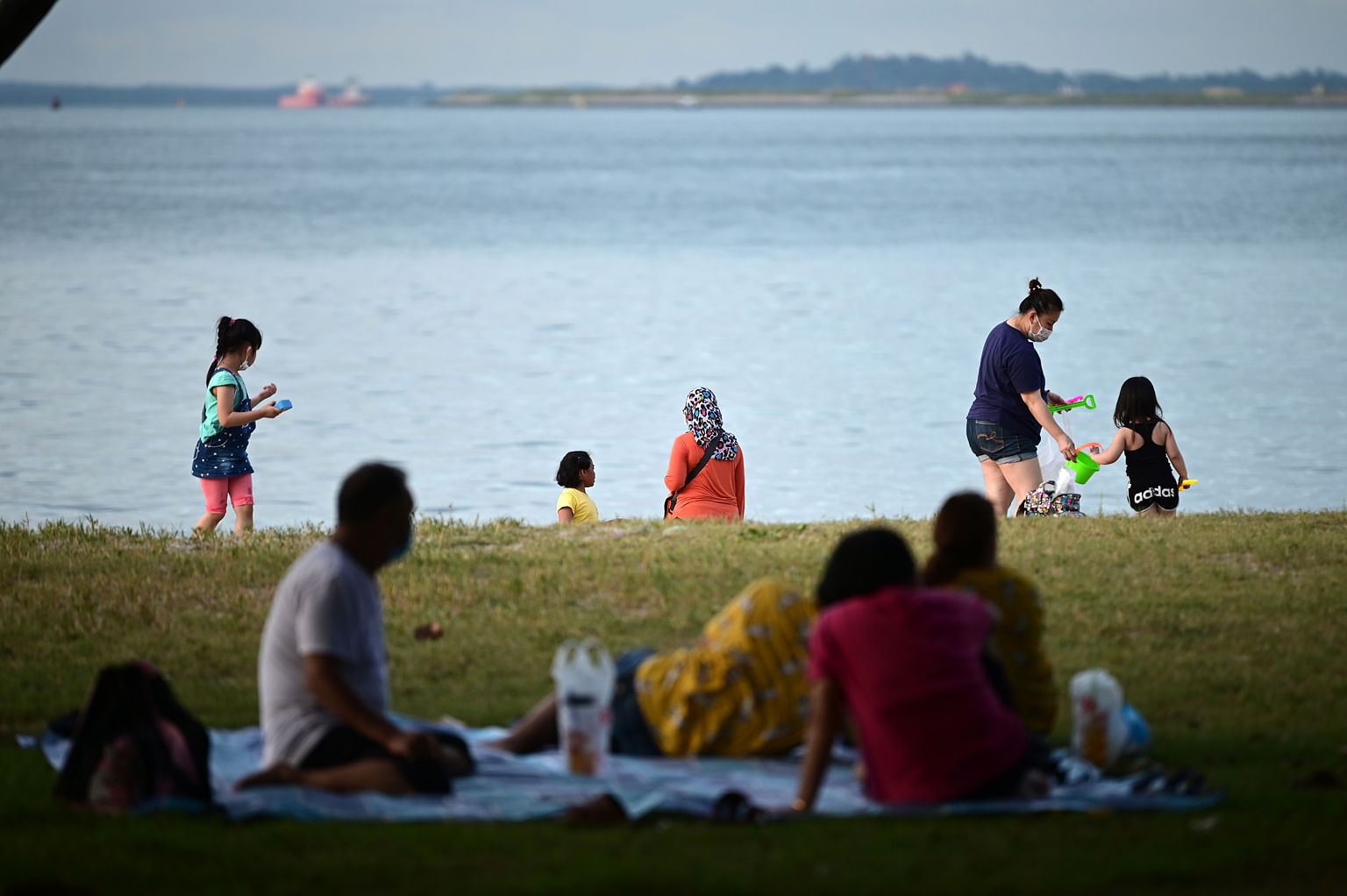Budget debate: Multiple layers of support to help S'poreans cope with impact of Covid-19, says DPM Heng
Sign up now: Get ST's newsletters delivered to your inbox

Deputy Prime Minister Heng Swee Keat said the bulk of every Budget goes towards uplifting all members society.
ST PHOTO: GIN TAY
SINGAPORE - From vulnerable segments of the population to the middle class and women, different groups of Singaporeans have been affected in different ways by the pandemic, and the Government has taken a customised approach to help them, said Deputy Prime Minister Heng Swee Keat on Friday (Feb 26).
There are the broad-based, permanent schemes that provide a safety net for all Singaporeans.
On top of these are temporary assistance schemes, such as initiatives like the Solidarity Payments, Temporary Relief Fund and Covid-19 Support Grant, to provide additional support, especially for vulnerable groups.
Addressing MPs' concerns about those hit hard by the pandemic-fuelled downturn, Mr Heng, who is also Finance Minister, said: "We cushioned the vulnerable against the worst of the crisis and mitigated social inequality."
He noted that the multiple layers of support helped bring down Singapore's Gini coefficient, after taxes and transfers, to a record low. The Gini coefficient - a measure of income inequality from 0 to 1, with 0 being most equal - went from 0.452 to 0.375 last year.
During the debate on the Budget, MPs from both sides of the aisle had acknowledged the efforts in this area, while suggesting ways for the Government to do even more.
Leader of the Opposition and Workers' Party (WP) chief Pritam Singh, had highlighted the plight of lower income families, noting that there was a divergence between the data on inequality and their lived experiences.
In response, Mr Heng said the Government was fully aware that some families had been hit more badly: "This is exactly why we have tilted our support significantly towards the lower-income and vulnerable groups and Government has partnered a community to reach out to those groups."
He stressed that conclusions about the support given should not be drawn based on one sample alone, but rather the totality of Singapore's policy measures.
Help for middle-income earners and women
Some MPs like Mr Gerald Giam (Aljunied GRC), from the WP, and Ms Jessica Tan (East Coast GRC) had lamented that the middle-income earners may have missed out on support measures.
To them, Mr Heng said the bulk of every Budget goes towards uplifting all members society, including the broad swathe of Singapore's middle class.
He added that $42 billion was set aside in this Budget for social spending and transfers, 35 per cent more than the 2019 financial year.
Pointing to the different support schemes, he said there are some which target those with less means, and others, like the upcoming $100 Community Development Council (CDC) vouchers, which will be given to all Singaporean households.
He also urge people to look at each Budget in terms of whether the spending creates more opportunities for them and their children, and not just what handouts they will receive.
For instance, expenditure on security makes Singapore safe and allows property and asset prices to rise over time in line with the country's economic fundamentals.
Investments in the economy also ensure that people have access to good jobs, he said.
Through providing affordable and quality housing, as well as support for young families and seniors, people can also achieve their aspirations for a better future, Mr Heng said.
He pointed to how subsidies for the purchase of Housing Board flats, at the current income ceiling of $14,000, gives eight in 10 Singaporeans access to affordable housing.
Over the years, families with children have also got help to defray the cost of education and childcare through broad-based grants, subsidies and tax benefits, said Mr Heng in response to Ms Cheng Li Hui (Tampines GRC) and Ms Hany Soh (Marsiling-Yew Tee GRC), who asked for more to be done to support parents.
Other like Minister of State for Social and Family Development Sun Xueling and Parliamentary Secretary for Health Rahayu Mahzam, spoke about creating more job opportunities for women and helping them adopt technology, among other things.
To them, Mr Heng said: "These are good points, which we can continue to work (on) together."

WP MP Louis Chua (Sengkang GRC), meanwhile, hoped more could be done to help seniors save for retirement, and Mr Heng assured him of the Government's commitment to do so through the Central Provident Fund system, Silver Support Scheme and Matched Retirement Savings Scheme.
"We are also in a fortunate position where most of our seniors have housing assets that they could use to support their retirement if they choose to," said Mr Heng.
He added that Singapore has also been investing in good and affordable healthcare for all Singaporeans, especially the elderly. To meet the needs of an ageing population, healthcare spending over the last decade has almost tripled from $3.9 billion in financial year 2011 to $11.3 billion in financial year 2019, he note.
He said this has resulted in good health outcomes, with Singapore doing well on the Bloomberg Health-Efficiency Index, which measures life expectancy as compared to medical spending.
Responding to Non-Constituency MP Leong Mun Wai from the Progress Singapore Party, who had charged that there was a lack of long-term support for Singaporeans, Mr Heng said: "So, with the most important items in life well taken care of, I hope members like Mr Leong Mun Wai will agree that his position that our support is 'ad-hoc, short term and unpredictable' is wrong, and in fact, our support is systematic, well structured and balanced."
Mr Heng added that the tax and transfer system had been gradually tilted in favour of lower- and middle-income groups over the past decade.
On average, lower-income Singaporean households can expect to receive benefits of $6,500 per person this year, after accounting for taxes. This figure is $3,500 for those from middle-income households.
Meanwhile, the highest-income households instead pay about $9,500 in taxes per person, after accounting for benefits, he added.
Unemployment insurance
Mr Patrick Tay (Pioneer), Nominated MP Hoon Hian Teck and the WP's Mr Chua had suggested that Singapore study the viability of an unemployment insurance for workers.
Mr Heng said that while unemployment insurance appears attractive, this would not be sustainable without longer-term structures in place to help workers bounce back.
In countries like Germany, Sweden, and South Korea, unemployment insurance schemes are linked to active labour market policy measures which aim to get an affected worker back into a job quickly and avoid skills atrophy, he noted.
"Instead... a job is the best welfare," said Mr Heng, echoing a view expressed by Mr Xie Yao Quan (Jurong GRC).
"It is more sustainable to ensure that workers maintain a source of income, and to upskill and re-skill our workers, so that they can bounce back quickly from job disruptions."
At the same time, the nature of jobs and skills will be changing faster as the global economy goes through an even faster pace of change, Mr Heng added.
"We will partner our business leaders, (the) labour movement, and academics to study how to support employability and help those who falter through measures that suit our context."


